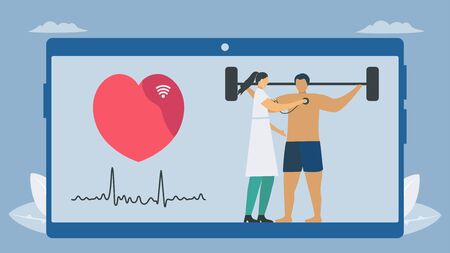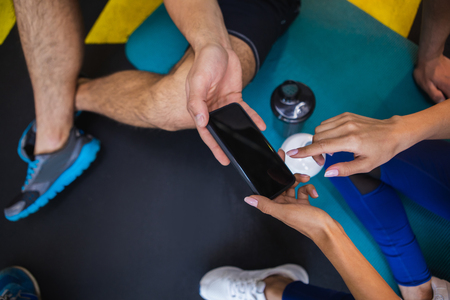1. Introduction: The Digital Landscape for Disabled Patients in the UK
Across Britain, digital technology is steadily transforming everyday life, with mobile apps playing an increasingly vital role in supporting health and wellbeing. Yet, for the more than 14 million people living with a disability in the UK, digital inclusion remains a significant concern. Recent statistics from NHS Digital reveal that disabled individuals are still less likely to access digital healthcare services than non-disabled peers, often due to barriers such as inaccessible interfaces or limited digital literacy. In addition to navigating daily challenges, disabled patients frequently encounter complex healthcare needs—ranging from mobility limitations to communication difficulties—which can make accessing traditional services even more daunting. As the NHS continues its digital transformation, understanding how mobile apps can bridge these gaps is crucial for ensuring equitable care and empowering every individual to manage their health with confidence and independence.
Bridging Barriers: How Mobile Apps Enhance Accessibility
Living with a disability often means encountering unique challenges in everyday life, especially when it comes to accessibility. Fortunately, mobile apps are steadily breaking down these barriers across Britain, enabling individuals to participate more fully in their communities. From navigating public transport to facilitating communication and accessing essential services, technology is making the world a more inclusive place for everyone.
Making Public Transport More Accessible
For many Britons with disabilities, getting around cities like London, Manchester, or Edinburgh can be daunting. However, several UK-specific apps have emerged to support accessible travel:
| App Name | Main Function | Notable Features |
|---|---|---|
| Citymapper | Public transport navigation | Step-free route planning, live accessibility alerts |
| TfL Go | London transport guidance | Real-time step-free access information on Tube and Overground stations |
| Passenger Assistance | National rail travel support | Book assistance for train journeys across Britain directly through the app |
Enhancing Communication and Independence
The ability to communicate effectively is fundamental to independence. British apps have risen to the challenge by providing solutions tailored for various needs:
- RogerVoice: Enables real-time captioning of phone calls for people who are deaf or hard of hearing.
- Proloquo2Go: Supports individuals with speech difficulties by offering symbol-based communication in British English.
- Ava: Transcribes group conversations instantly, making meetings and social gatherings more accessible.
Navigating Everyday Life with Confidence
Beyond transport and communication, other apps assist with daily activities:
- Be My Eyes: Connects visually impaired users with sighted volunteers in the UK for instant assistance via video call.
- Recite Me: Offers website accessibility tools, such as text-to-speech and screen masking, supporting users in online environments.
- BriteYellow: Provides indoor wayfinding in British hospitals and shopping centres using Bluetooth technology.
A Culture of Inclusion Through Technology
The rise of these mobile solutions reflects Britain’s growing commitment to inclusion and equality. By harnessing digital innovation, communities across the UK are ensuring that everyone—regardless of ability—can move through life with greater ease, confidence, and dignity. These advances not only open doors but foster a sense of belonging and empowerment for all.

3. Supporting Self-Management and Independence
For individuals living with disabilities in Britain, maintaining independence and managing one’s own health can be a daily challenge. Mobile health apps are increasingly playing a pivotal role in supporting self-management and autonomy by offering tools specifically tailored to the needs of UK patients. These apps provide discreet and practical features such as medication reminders, which help users stay on top of complex prescription schedules without relying solely on carers or family members. Symptom tracking functionalities allow patients to log their daily experiences—pain levels, mood fluctuations, or mobility changes—which not only support personal insight but also facilitate more accurate discussions with NHS healthcare professionals during routine appointments.
Additionally, many mobile health apps now offer the option for remote consultations. This means patients with disabilities can access GP advice or specialist input from the comfort of their homes, reducing the need for potentially challenging travel across British towns and cities. These services are designed to integrate seamlessly with established UK healthcare pathways, ensuring that digital records and patient information are shared securely between app platforms and NHS systems. The result is a more cohesive care experience that respects both the autonomy and unique circumstances of each individual. By empowering users to monitor their own health, adhere to treatment plans, and communicate efficiently with clinicians, mobile apps are steadily helping to foster a greater sense of confidence and self-reliance among disabled people across the UK.
4. Collaboration with the NHS and Advocacy Groups
One of the most significant strengths behind the success of mobile apps for disabled patients in Britain is the close collaboration between app developers, the National Health Service (NHS), and various disability advocacy organisations. These partnerships ensure that digital health tools are not only technologically advanced but also safe, reliable, and culturally attuned to the needs of British users.
By working directly with NHS clinicians and healthcare policy makers, developers can gain invaluable insights into medical standards, patient privacy requirements, and best practices for clinical safety. At the same time, involvement from advocacy groups—such as Scope, Disability Rights UK, and local user-led organisations—ensures that app content, accessibility features, and interface design reflect lived experiences and daily realities faced by people with disabilities across England, Scotland, Wales, and Northern Ireland.
How Partnerships Shape App Quality
| Stakeholder | Role in App Development | Impact on Patient Experience |
|---|---|---|
| NHS | Provides clinical guidance; ensures compliance with UK health regulations; integrates apps with NHS services such as e-prescriptions and GP records | Builds trust; improves safety; streamlines access to care |
| Advocacy Groups | Advise on accessibility standards; review language and tone; test usability for different disabilities | Makes apps more inclusive; boosts engagement among disabled users; reflects real-world needs |
| App Developers | Create technology; implement feedback from NHS and advocates; update apps according to new policies or needs | Ensures continuous improvement; adapts rapidly to user feedback; maintains cultural relevance |
The Importance of Cultural Relevance in Britain
Cultural relevance goes beyond language or user interface—it encompasses respect for local attitudes towards disability, understanding of regional health system differences, and sensitivity to privacy concerns unique to British society. By engaging widely with stakeholders throughout Britain, app developers can tailor solutions that empower patients in both urban cities like London and rural communities across Wales or Scotland.
Building Trust Through Transparency and Co-Design
Many successful projects use a co-design approach: patients themselves are invited to contribute ideas, share challenges, and participate in beta testing. This transparent process not only increases trust but also results in apps that genuinely meet the needs of Britain’s diverse disabled population.
5. Challenges and Digital Inclusion Gaps
While mobile apps offer significant promise for empowering patients with disabilities across Britain, it is important to acknowledge the ongoing challenges and gaps in digital inclusion that many still face.
Digital Literacy
For some individuals, particularly older adults or those with learning disabilities, digital literacy remains a substantial barrier. Navigating app interfaces, understanding technical jargon, or simply knowing how to download and update applications can be daunting without appropriate support and training. Community-led workshops and accessible tutorials are gradually helping bridge these gaps, but disparities persist, especially in rural areas.
Affordability
The cost of smartphones, tablets, and reliable internet access can also present obstacles for people living with disabilities, many of whom may already face financial constraints due to limited employment opportunities. Although the NHS and some charities provide devices or subsidised data plans, not everyone qualifies for this assistance. The expense of assistive technology apps themselves can further exacerbate inequalities.
Privacy Concerns
Many disabled patients express worries about the privacy and security of their personal health data. There is a cultural emphasis in the UK on safeguarding individual rights and maintaining trust in public institutions like the NHS. Any breach or misuse of sensitive information could undermine confidence in digital health solutions, making transparency and robust data protection paramount for widespread adoption.
Persistent Barriers
Despite advances in app accessibility standards, not all platforms are designed with inclusivity in mind. Visually impaired users, for example, may struggle with poorly labelled buttons or insufficient screen reader compatibility. Similarly, people with dexterity challenges might find touch-based navigation frustrating if alternative input methods are not provided. These ongoing barriers highlight the need for co-designing digital tools with disabled people at every stage.
A Compassionate Path Forward
Addressing these challenges requires collaborative efforts among technology developers, healthcare providers, policymakers, and the disability community itself. By actively listening to lived experiences and prioritising universal design principles, Britain can move towards a future where digital empowerment is truly accessible for all.
6. Looking Ahead: The Future of Accessible Healthcare Technology in Britain
As we reflect on the remarkable progress made through mobile apps empowering patients with disabilities across Britain, it becomes clear that innovation is not just a fleeting trend—it is the foundation for a more inclusive future. Today, British developers and healthcare providers are working hand in hand to ensure that digital solutions remain accessible, practical, and sensitive to the unique needs of disabled users. These efforts have already led to life-changing improvements in independence and wellbeing, offering new ways for individuals to manage their health, communicate with professionals, and access services with dignity.
Looking ahead, the future holds even greater promise. Advancements in artificial intelligence, voice recognition, and wearable technology are poised to break down more barriers. Imagine a world where AI-powered apps can anticipate medical needs or translate complex health information into easy-to-understand formats tailored for each user. In Britain’s context, ongoing collaboration between the NHS, tech companies, patient groups, and policymakers means that accessibility will remain at the heart of digital healthcare evolution.
Of course, there is still work to do. Ensuring equal access across urban and rural communities, protecting patient data privacy, and offering digital literacy support will be essential as technology advances. But the outlook is hopeful: with every new app release or feature update, more people gain tools to take charge of their wellbeing.
Ultimately, technology must continue to listen to real voices—embracing feedback from people living with disabilities throughout the UK. This commitment will help shape digital health solutions that are as diverse and resilient as the communities they serve. By nurturing this spirit of partnership and compassion, Britain can look forward to a future where everyone has an equal opportunity to thrive through accessible healthcare technology.


